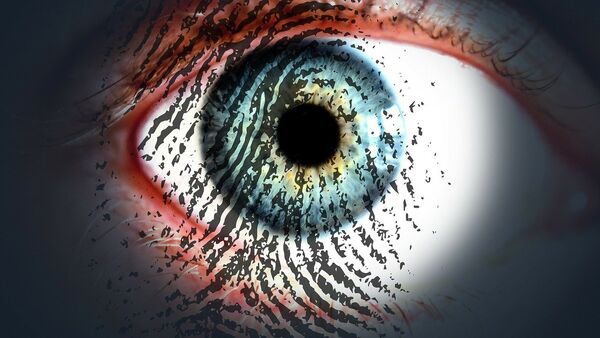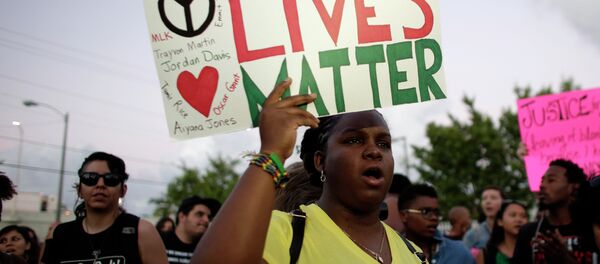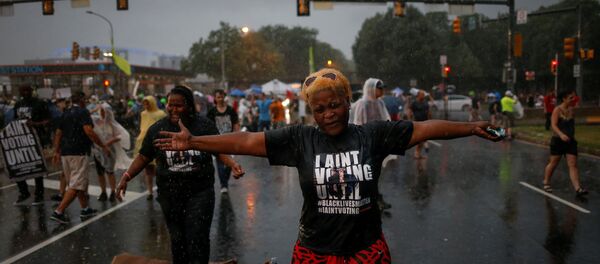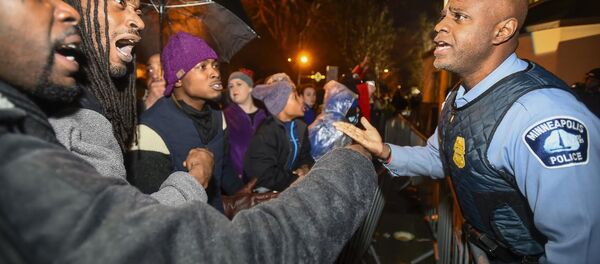The New York-based Center for Constitutional Rights and the California-based nonprofit Color of Change made their requests on Thursday in federal court. Brandi Collins, Color of Change campaign director, said in a statement, "Government is supposed to protect our rights, not suppress our freedom—and yet for decades we've seen our government engage in a number of illegal surveillance practices that do just that," according to Courthouse News.
Collins added, "Despite their denials, it is clear the Department of Homeland Security and FBI are continuing their disturbing legacy of employing secretive surveillance tactics with murky legal parameters to chill the Movement for Black Lives, along the way targeting individuals in a number of terrifying ways.
The hashtag #BlackLivesMatter was first created in 2012 after the acquittal of George Zimmerman in the shooting death of unarmed 17-year-old Trayvon Martin, in Florida. In 2014, after Ferguson, Missouri, police officer Darren Wilson shot and killed unarmed 18-year-old Mike Brown, there were nationwide protests and calls for accountability in law enforcement.
To distinguish themselves from the Black Lives Matter group, some organizations began referring to themselves collectively as the Movement for Black Lives (M4BL), and expanded their platform, beyond police brutality, to other issues affecting African Americans including unemployment, fair wages, immigration, mass incarceration and LGBTQ rights.
The 17-page lawsuit reads, in part, "Police violence, criminal justice, and racial inequity are now the subjects of an impassioned national, political debate…[The Movement for Black Lives] has played a significant role in bringing this discussion to the forefront by holding demonstrations in cities throughout the country, often in response to deadly police shootings of black people."
The two groups bringing the suit are claiming that surveillance of the M4BL is violating the constitutional right of activists and protesters to assembly and free speech.
"[The Movement for Black Lives] has played a significant role in bringing this discussion to the forefront by holding demonstrations in cities throughout the country, often in response to deadly police shootings of black people."
It has been revealed that undercover officers and surveillance technology including "Stingray" have been used to spy on demonstrations, and recently it was discovered that tech companies, such as Geofeedia, conduct mass surveillance on progressive movements, feeding raw data to law enforcement organizations.
The same tactics were used on protesters in Ferguson, Missouri, where Brown was killed, and Baltimore, Maryland, where unarmed Freddie Gray was also killed by police.
"Just like in decades past, fatal police shootings of black people continue with alarming frequency, as does the unlawful government surveillance of those who speak out against it and protest," said Omar Farah, attorney for the Center for Constitutional Rights. "The public has the right to know how and why the federal government is surveilling constitutionally protected activity in response to police violence."





